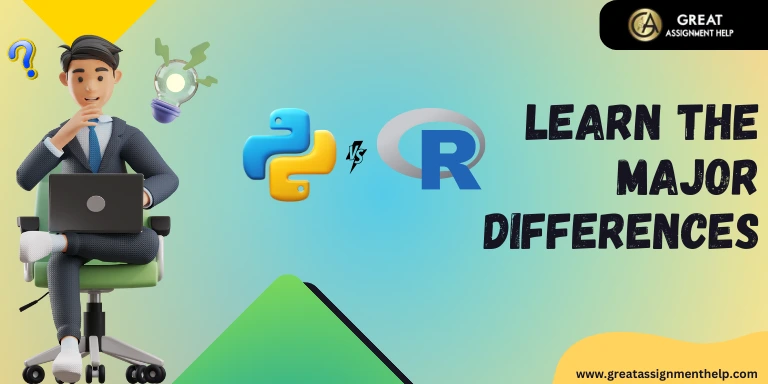Social Responsibility of a Business
Question :
You are to produce a correctly-referenced essay (using the Harvard referencing system) on the topic below.
“The social responsibility of business is to increase its profits“ {Friedman, 1970). Critically discuss this statement using contrasting theories and an extended example that illustrates Socially Responsible behavior.
Answer :
Critical Analysis of Milton Friedman’s Social Responsibility of Business
In order to critically evaluate the statement “The social responsibility of business is to increase its profit” stated by Friedman, 1970, it is important to understand the concept of corporate social responsibility of a business in the current situation. There is no universal definition of corporate social responsibility. Every organization defines the concept based on their opinion about the concept and nature of business. However, a common definition of corporate social responsibility is “A self-regulating business model that helps an organization to be socially responsible and accountable to the public, stakeholders, and itself (Lins et al., 2017).” This concept of corporate social responsibility is opposing the statement given by Friedman. There are several models of corporate social responsibility that oppose the concept and meaning of social responsibility of business given by Friedman.
It is also important to look into the statement given by Friedman in order to understand the meaning and context of the statement. According to Friedman, the social responsibility of business is to increase its profit. According to him, a business cannot have responsibilities. People have the responsibility and a corporation is an artificial person and hence it may have artificial responsibility. It does not imply that business as a whole will have responsibilities. In this sense, the business has only one purpose to make as much money as it can (Jacobs, 2018). His idea of social responsibility of business has been criticized by several scholars by stating that Milton Friedman was wrong about corporate social responsibility. However, no one can deny that it is one of the responsibilities of business is to increase profit in order to provide the handsome return to the shareholders of the organization and attractive rewards and incentives to its employees. But this is not the only responsibility business should have.
The concept of Friedman of social responsibility of business has been significantly opposed by Edward Freeman. Edward Freeman countered the statement of Milton Friedman of making a maximum profit by stating that this is a mistake. He argued that profit is not the primary cause of the activities of a company. Profit is a consequence of the activities of the company. He gave a new theory named Stakeholder Theory to keep his point.
According to the point of view of Edward Freeman, the idea of Friedman solely focuses on the shareholders of the company and ignores others who are also significantly affected by the activities of the company such as employees, clients, and suppliers (Glassman & Glassman, 2017). It is also important to note that without clients, employees, and suppliers the company would go bankrupt. So, countering the statement of Friedman, Freeman said the aim of the company is to meet the needs of the stakeholders. He defined the term stakeholder as “those groups without whose support the organization could cease to exist.” The major stakeholders of an organization are employees, customers, suppliers, local communities, environmental groups, political action groups, the government, financial institutions, media, and many more. The action or decision of an organization affects all these groups in one way or another way and hence, it is the responsibility of the organization to take care of the interest of all these groups (Elrick & Thies, 2018). For example, Southwest Airline significantly focuses on its employees and provide an effective training program to them in order to make them able to grow and develop and assume higher responsibility. It considers that the organization is responsible for the welfare of its employees. Apart from this, the organization is heavily focused on protecting the environment and hence it has significantly reduced the emission of carbon dioxide.
In order to keep the organization healthy and successful in the long-term, the organization should identify the needs of these groups and satisfy them. For example, the organization should protect the interest and needs of its employees and if it treats its employees badly, it will eventually fail. If the organization forces its projects on societies to detrimental effect, it will fail. Hence, an organization cannot ignore any of its stakeholders (Freeman, 2017). According to Freeman, the idea of Friedman can lead an organization to generate profit but only in the short-term. Friedman's idea of the social responsibility of a company cannot lead the organization to generate profit in the long-term because it ignores stakeholders other than shareholders and as the stakeholders of the company become dissatisfied and feel let down, the organization cannot sustain and survive.
The idea of Milton Friedman has also been opposed by Carroll who has developed a CSR pyramid. However, Carroll has also argued that profit must come first because it is the foundation of corporate social responsibility. He says that corporate social responsibility is built on the foundation of profit and hence the company should focus on making a profit. But making a profit is not the only responsibility of a company as stated by Milton Friedman. Carroll says that the organization does not have only one responsible for making a profit but it has also a responsibility towards the society and the environment (Baden, 2016). He developed a pyramid that includes four responsibilities of an organization such as economic, legal, ethical, and philanthropic.

The economic responsibility of an organization shows that the responsibility of a business is to be profitable. Being profitable is the only way to survive in the market as well as benefit society in the long-term. Thus, if an organization focuses on generating profit effectively can survive for the long-term and discharge its other obligations. Apart from the responsibility of being profitable, the organization is also responsible for obeying laws and other regulations (Ehie, 2016). There are several laws that govern the functioning of an organization such as employment law, health and safety law, competition law, etc. If an organization does not adhere to the laws and regulations, it will face severe consequences, and eventually, it may fail.
Moreover, the organization is also responsible for acting ethically and morally. The organization should consider the impact of its activities and actions on the environment and society and ensure that the environment and the society are not being adversely affected by the action and activities of the organization. This responsibility implies that the organization should go beyond the narrow requirement of the law to serve the society and the environment. The ethical responsibility of an organization takes into consideration the treatment of employees and suppliers fairly and respectfully.
Other than all the above three responsibilities, an organization also has philanthropic responsibility. The philanthropic responsibility of an organization is the responsibility of giving back to society. However, this responsibility is discretionary but still significant. Thus, the Carrol model also opposes the idea of Friedman who says that the social responsibility of a business is to increase its profit (Kumar, 2017). Carroll model identifies three more responsibilities for business apart from increasing profit.
If the concept of the triple bottom line is viewed and understand, it can be seen that the triple bottom line also opposes the concept of Milton Friedman of the social responsibility of business. According to the concept of the triple bottom line, an organization has a responsibility towards the organization itself, people, as well as the planet. The concept of the triple bottom line was initially coined by John Elkington. It is a framework that recommends that an organization should commit to focusing on environmental as well as a social concern as it focuses on generating profit (Hussain et al., 2018). Thus, it contrasts the idea of Friedman of only focusing on increasing profit.
It states that there should be three bottom lines instead of one bottom line such as profit, people, and the planet. These three-bottom lines also help in measuring the performance of an organization in terms of financial performance, social performance, as well as environmental performance. Milton Friedman's idea of social responsibility considers increasing profit is the only focus of a business while the concept of the triple bottom line says that making a profit is one of the parts of the business plan. The organization should make a profit in order to function, sustain, and survive in the market. If an organization is making a handsome profit, it can pay its employees and shareholders effectively.
The organization has also a responsibility towards the people who are working for the organization as well as the people of the wider community where the organization does its business. The organization should benefit the society in every possible way. For example, the organization should pay fair wages to laborers. The working conditions should be healthy and humane so that laborers can work in a safe and secure environment. Similarly, an organization has the responsibility to protect the environment and reduce the impact of its activities and actions on the environment (Wise, 2016). It is also important to note that the people are being environmentally conscious and if they found an organization not adhering to the guidelines to protect the environment, they do not prefer to purchase the product and service. Thus, in order to survive for a long time in the market, the organization should focus on its activities and its consequences on the environment. For example, Apple Inc. is investing a huge amount of money on environmental sustainability. Ikea has also significantly focused on protecting the environment and hence it recycles the waste generated by the organization. It has also helped the organization to make a handsome profit out of it.
So, it can be concluded that the idea of Milton Friedman of the social responsibility of a business is not right. An organization should not only focus on increasing its profit because it may severely affect the organization in the long-term. The organization focuses on increasing profit may generate profit in the short-term only because it will not focus on other key stakeholders of the organization who help the business to function in the market. As they feel let down, they cannot support the organization the way they were supporting it earlier. Therefore, an organization must focus on all stakeholders of the organization rather than focusing on increasing profit in order to survive in the market for the long-term.
References
Baden, D. (2016). A reconstruction of Carroll’s pyramid of corporate social responsibility for the 21st century. International journal of corporate social responsibility, 1(1), 8.
Ehie, I. C. (2016). Examining the corporate social responsibility orientation in developing countries: an empirical investigation of the Carroll's CSR pyramid. International Journal of Business Governance and Ethics, 11(1), 42755.
Elrick, J., & Thies, C. F. (2018). The Social Responsibility of Business: Milton Friedman Reconsidered. Journal of Markets & Morality, 21(2).
Freeman, R. E. (2017). The new story of business: Towards more responsible capitalism. Business and Society Review, 122(3), 449-465.
Glassman, M., & Glassman, A. (2017). Is dual language marketing socially responsible?. Business Horizons, 60(4), 565-572.
Hussain, N., Rigoni, U., & Orij, R. P. (2018). Corporate governance and sustainability performance: Analysis of triple bottom line performance. Journal of Business Ethics, 149(2), 411-432.
Jacobs, B. L. (2018). Milton Friedman Has a Lot to Answer For: A Response to Joshua Fershee’s “Long Live Director Primacy: Social Benefit Entities and the Downfall of Social Responsibility”. Transactions: The Tennessee Journal of Business Law, 19(1), 21.
Kumar, T. (2017). Corporate Social Responsibility Practice of Bangladesh Road Transport Corporation: A Comparative Study on the Basis of Carroll's Pyramid. Journal of Applied Management and Investments, 6(2).
Lins, K. V., Servaes, H., & Tamayo, A. (2017). Social capital, trust, and firm performance: The value of corporate social responsibility during the financial crisis. The Journal of Finance, 72(4), 1785-1824.
Wise, N. (2016). Outlining triple bottom line contexts in urban tourism regeneration. Cities, 53, 30-34.









